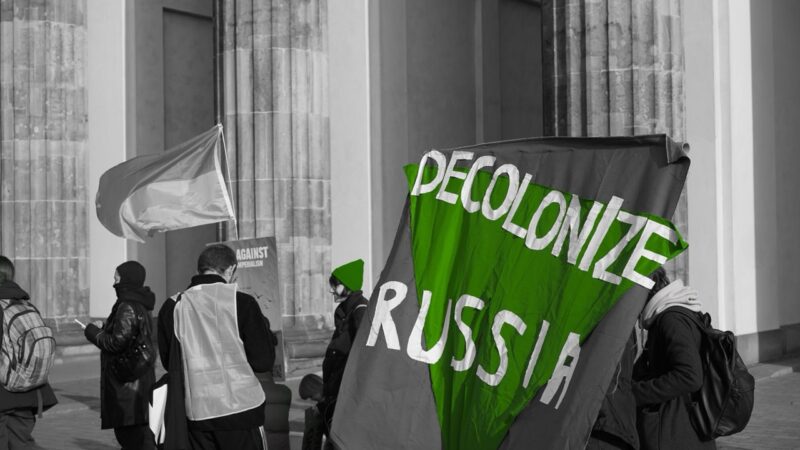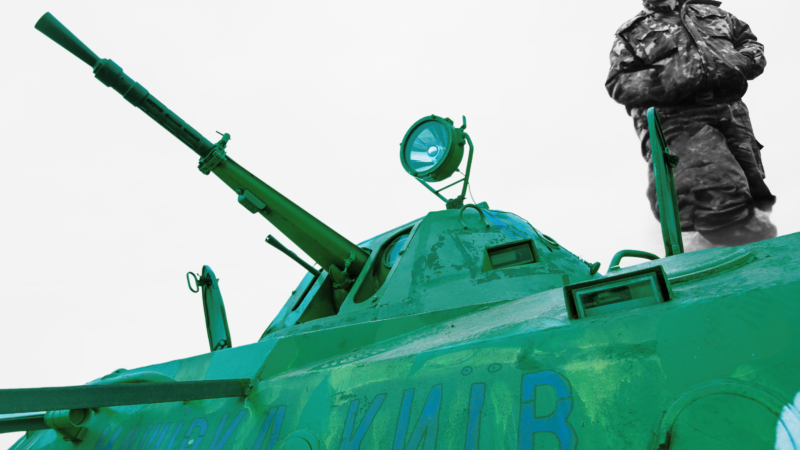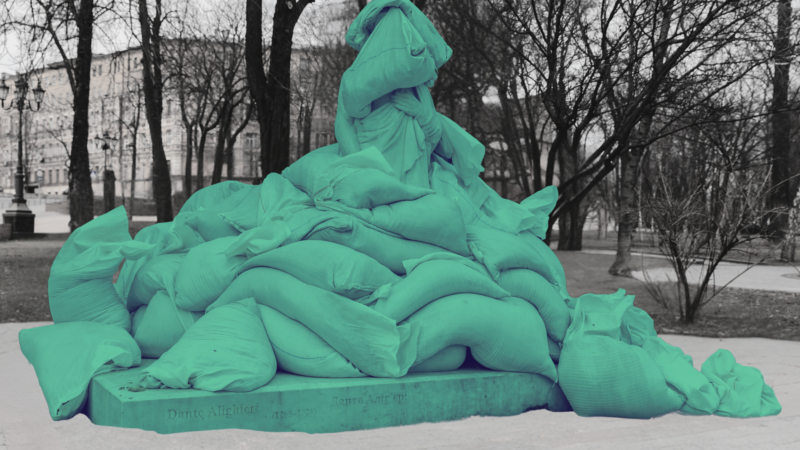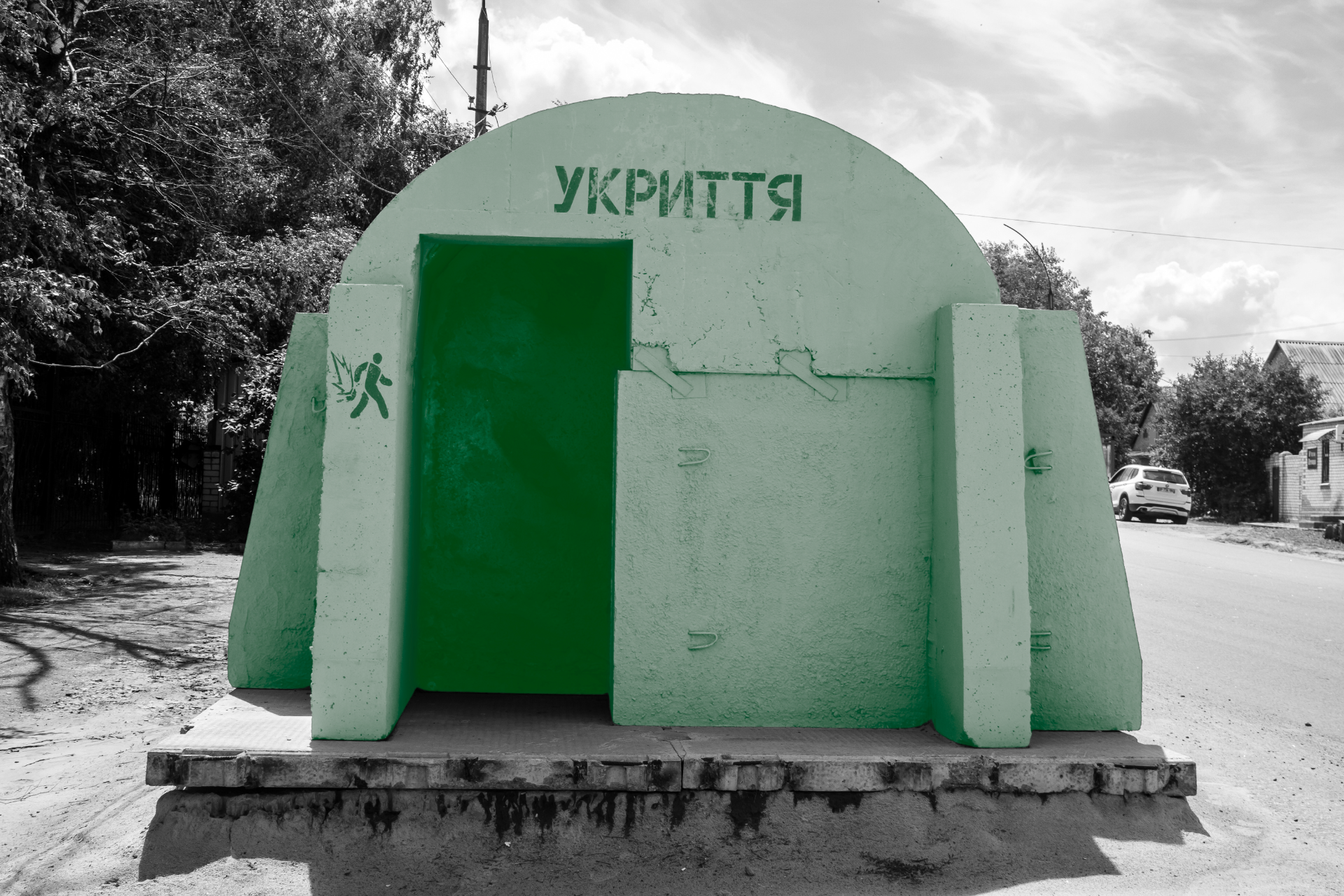Interview with Alexander Motyl | There is no choice for Ukraine but to resist
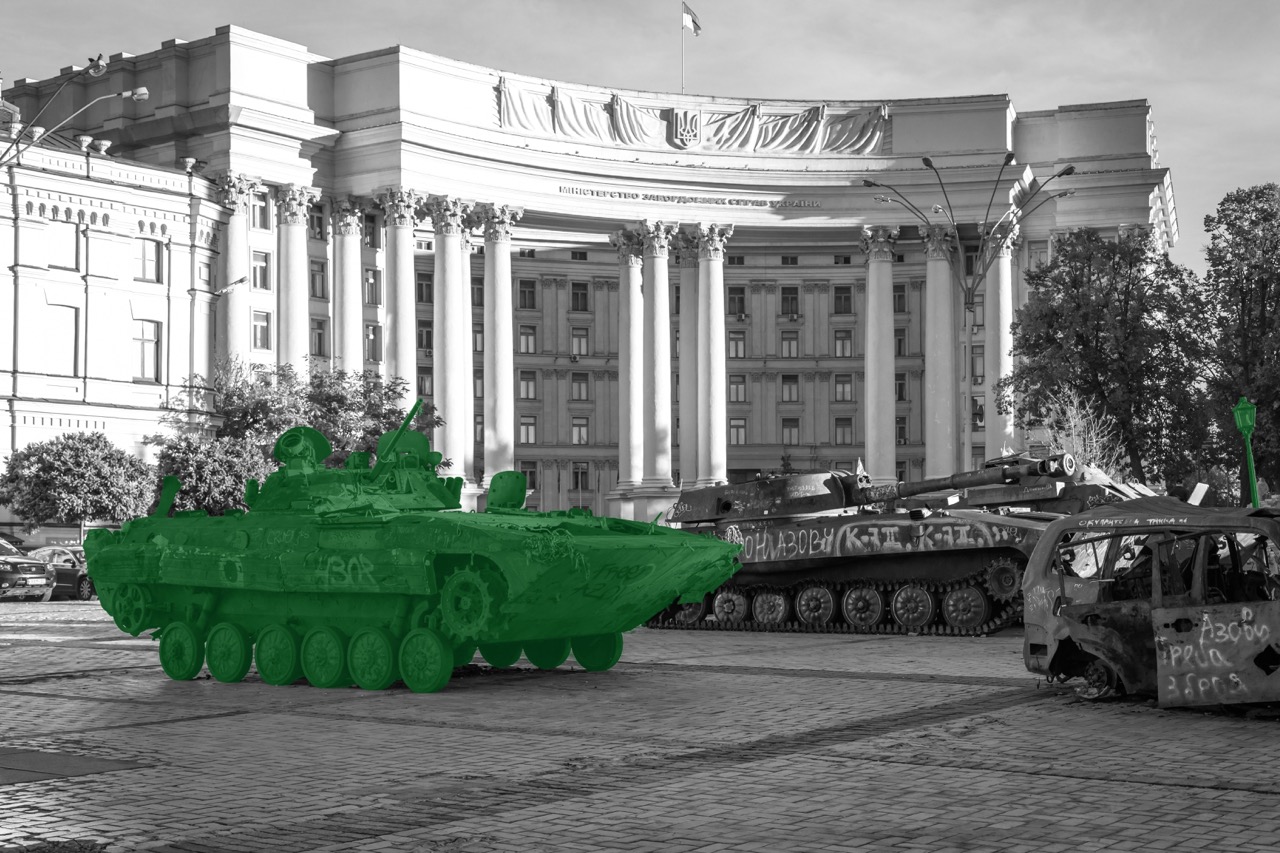
Oleksandr Pankieiev: When we last spoke, it was just one week after the liberation of Kherson, at the beginning of the first year of the escalated invasion. Now, as we enter the fourth year of the war and the twelfth year since Russia’s incursion in 2014, how do you summarize the trajectory of this war? Did you anticipate that it would drag on for this long and become so entrenched?
Alexander Motyl: I’m not sure if I personally anticipated its length, but I know that I was not expecting either side to have a smashing victory. Sometime in the summer or fall of 2022, I gave an online talk at Lviv University, in which I concluded that it would become a war of attrition, which is essentially what it has become. I don’t want to suggest that I was predicting this, but it seemed to me that Ukraine had the better tactics and Russia had more soldiers. At Montclair State University in New Jersey, I essentially argued the same thing: that it was a question of how many bullets Ukraine had and how many soldiers or bodies Russia had. I suppose that in some ways I anticipated the war’s trajectory as it’s currently unfolding, but I don’t think I made any formal predictions.
Pankieiev: How sustainable is Russia’s war effort—militarily, economically, and socially—over the next two years? What pressures could erode its capacity to continue fighting at this scale?
Motyl: As you are aware, there are two views on this. One view argues that Russia has the capacity to wage a long-term war. Essentially, this is an argument based on numbers. Russia has a population of 145 million, has a larger army, has more of everything. There is obviously something to be said in favour of this point of view. Numbers matter; the size of the economy and population matter.
However, as we know from history, that is not all that matters. If that was the case, the Greeks would never have defeated the Persians. Alexander the Great would never have conquered an empire, but he did—with a relatively small army. The Romans would certainly never have expanded as quickly as they did. The United States should have won in Vietnam, Iraq, and Afghanistan, but it didn’t.
Clearly, other factors are also important: the quality of leadership, the quality of soldiers, the state of the economy, the morale of the population and the military, and the strategy and tactics pursued by the generals. All of these things are significant. From that point of view, it seems to me that the argument for Russia’s inability to sustain its war effort becomes significantly more persuasive. That’s the second argument, and it’s also the one I share.
When one looks at Russia’s economic and military capacities and the enormous number of soldiers that it’s losing on a monthly basis, both dead and wounded—which has already surpassed one million—the consumer economy is in very serious trouble, as even Russian officials admit. There isn’t any investment. Inflation is high; officially, it stands at about 10%, but unofficially it’s closer to 22 or 23%. Consumer goods are also in short supply. There are shortages of food. Putin is running out of money, so at some point he’ll either have to print money, which risks inflation and even hyperinflation, or alternatively, he’ll have to take money from the people.
The low quality of the Russian soldiers is another problem. There’s lots of evidence supporting the fact that recent recruits are being thrown into the first line of battle. They’re demoralized, hungry, and angry. Some of them remain very patriotic, while others are less so. When considering the entire picture of the Russian military, economy, and society, a clear sense emerges that this is a country that cannot sustain such economic and personnel losses indefinitely. At some point, things need to change. Some kind of breakdown will take place.
Putin seemingly believes that he can win. He appears to be confident that everything is fine. He may sincerely believe that, in which case he’s deluded. It wouldn’t be the first time that he has been delusional. He was deluded in 2014 and 2004—and especially when it comes to Ukraine, he seems to suffer from enormous delusions. It is very possible that he has persuaded himself that the only possible outcome is a smashing Russian victory. He may also be lying. No leader admits to being a failure, and effectively he has become one.
Keep in mind: in addition to the problems with this war, Russia is a rogue state. For one thing, it is allied with North Korea, and the North Koreans have provided some military assistance. This is ridiculous—for an alleged superpower to be accepting assistance from such a tiny power. The war has helped NATO expand to include Sweden and Finland. Moreover, the war has not destroyed Ukraine or even captured a majority of the provinces that Moscow has claimed as its own.
From every point of view, it has been a disaster for Putin. Can he sustain this? Can Ukraine sustain this? I do not think Russia can sustain its efforts. We could see a collapse tomorrow. These things have happened in Russian history. They’ve happened throughout history in all parts of the world. It could be a month from now. It could be a year from now, but it’s unlikely to be more than two years from now, due to the enormous strains being placed on society, the economy, and the soldiers. I give Putin at most two years in which he must either win or lose.
Meanwhile, can Ukraine sustain this? Part of the answer is that they have no choice but to sustain their efforts. It’s a terrible situation to face. However, unlike the Russians—for whom this is a war of choice—for Ukraine, there is no choice, which accounts for the much-vaunted resilience of the Ukrainian population. Yes, they are resilient and brave, they are hardened, but at the same time, what’s the alternative?
At the same time, we do know that in terms of quality, Ukrainian soldiers are probably better than Russian soldiers. Ukraine has done well on a number of fronts. It has managed to keep Russia’s advances to a very small percentage. At the current rate, it would take Russia 120 or some fantastic number of years to capture Kyiv. That is to say, their advances are very, very slow, so Ukraine is doing a good job holding them off. Ukraine is killing and wounding roughly 1, 300–1,400 Russian soldiers on a daily basis, and there is no reason to think that it cannot maintain this rate, because it has the drones and soldiers to do so. Although Ukraine may not be receiving as many resources from the United States as in the past, certainly the Germans, French, British, Dutch, and Scandinavians are more than willing to support them financially and militarily.
My guess is that even though Ukrainians will continue to pay a high price, they will also continue to restrain and hold the Russians at a relatively stable position, with perhaps a few advances here and a few losses there. It’s essential to keep in mind the following, which relates to the numbers. Russia is losing something like 35,000 soldiers a month, maybe a little more. Let’s say it’s 1,300 a day times thirty days. That is almost 40,000 per month, and Moscow drafts roughly 30,000–40,000 soldiers on a monthly basis. In effect, what this means—assuming these calculations are more or less accurate—is that the Ukrainians are effectively killing and wounding as many new conscripts as Russia is producing.
The war is rapidly approaching the point where it will become unsustainable for Russia, not because Putin loves Russians or because Russians are necessarily suffering, but because he won’t be able to maintain the requisite number of soldiers on the field.
Of course, Ukraine is also having enormous economic difficulties. Its population is tired, some people are demoralized, and desertions are taking place. All of these conditions have been present within the last year, certainly since the beginning of 2025. Now we are five months into 2025, and Ukraine has been receiving very little American assistance. However, assistance is forthcoming from the Europeans.
Nonetheless, despite these issues Ukraine has managed to hold off the Russians, which suggests to me that it can continue to do so. If the Europeans and perhaps the Americans come through and continue to supply more weaponry, Ukraine could even be in a position to push back Russian forces in some areas. The Europeans seem to be quite serious about this. I don’t trust Trump for a second, but he might be willing to sell armaments to the Europeans, who would then deliver them to Ukraine.
In any case, if this kind of assistance continues or is amplified, there could be a pushback that would essentially signal to the Russians that they’re losing and perhaps have already lost. However, I don’t foresee a return to the 2004 or even the 2014 borders.
Despite the numerous negative reports in the press and the enormous difficulties Ukraine is facing, I remain cautiously optimistic about the war’s outcome. Of course, a lot depends on the Europeans and Americans. If they fail to deliver, Ukraine’s problems will be significantly amplified; however, if they do come through, Ukraine could emerge victorious.
Pankieiev: We have heard far fewer nuclear threats coming from Russia recently compared to the early stages of the war. Does this suggest that nuclear blackmail no longer works as a strategic tool for the Kremlin? What does the decline in such rhetoric reveal about shifts in Russia’s strategy or the West’s resolve?
Motyl: This is a very good question, but we do not have an obvious answer. If you look at the past, Russia has threatened to use nuclear weapons when it looked like Ukraine was making significant advances and that Russia might lose, or when the Western countries were providing Ukraine with missiles and other armaments that could strike deep within Russia. Russia does not make these threats randomly; there appears to be a causal relationship. When they perceive things are going badly, they start threatening and engaging in sabre-rattling behaviour.
This is significant because it also means that they are, to some degree, reluctant to use these kinds of weapons—as well they should be. China has expressed its displeasure with any possible use of nuclear weapons. The United States under Biden was very clear that catastrophic consequences would ensue if Russia used them. We do not know what Trump’s position is or has been, and if Russia was to use a tactical nuclear device, it’s possible that he would simply shrug and say it was the Ukrainians’ fault. On the other hand, it’s also conceivable that he would respond with some rage. Now, whether rage would translate into policy behaviour is always an open question with Trump.
It seems to me that the Russians are aware of the dangers to them, the world, and their allies of using nuclear weapons in a first strike. They should be aware. The one person who is completely crazy when it comes to nuclear weapons is Dmitrii Medvedev. He generally throws about nuclear weapons threats, regardless of the circumstances. He may be speaking for himself or Putin, but he doesn’t seem to represent the opinions of—let’s call them more sober-minded individuals within the Russian military establishment.
That said, the threat remains. I can imagine Ukraine receiving armaments and being able to push back the Russians on several fronts—maybe not march on Moscow, but push them across the border, as in Kursk. If it looks like Russia is losing, it’s conceivable that they will resuscitate the threat of using nuclear weapons. We need to be prepared for that.
How should Ukraine respond again? I’m inclined to think that the Russians are bluffing, that they’re doing this on purpose, because they know everybody is terrified and rightly so. That being said, Putin is Putin, and his people, his general staff, and his advisers are all war criminals. I wouldn’t put it past them to give it serious consideration. That was apparently something they were giving serious consideration to at the end of 2022. American intelligence estimated there was a 50:50 chance; then the Americans dissuaded the Russians from doing it. If that’s the case, 50:50 is quite a lot. That means it could have been resolved by the flip of a coin, which is a scary thought.
Pankieiev: You mentioned in a recent opinion piece that engaging Putin at the negotiating table mainly serves to expose his mendacity and bad faith rather than achieve peace. If Putin is not genuinely seeking an end to the war, how do you realistically see this conflict ending? What scenarios and tools—military, diplomatic, economic, or otherwise—are available today to bring about a resolution?
Motyl: I firmly believe that the war will not end as long as Putin is around, or unless Putin is forced to end the war. Why is that the case? Very simply, it’s his war. His entire political career (to the degree that he has any legitimacy), his popularity, and his ability to sustain himself in power, all hang on the outcome of this war. For him to agree to a ceasefire today, when Ukraine is still controlling large parts of the four oblasts that he officially annexed several years ago, would mean accepting defeat, and that could undermine him completely at home.
We know that the Russian political and economic elites are divided. We know from history, from Russian history, that coups, murders, assassinations are a dime a dozen, and we know from world history that when one looks at putsches and coups d’état and the assassinations of leaders, they take place in exactly the kind of circumstances in which Russia and Putin are today. A trigger or spark can occur in the form of terrible wars, economic crises, political crises, a split within the elite, or a stubborn leader who refuses to change their point of view. Something can happen in which the country decides it needs to overthrow the regime. Look at the conspiracy against Hitler. It failed, but it could have easily succeeded if the bomb hadn’t been placed where it was, and then we’d be talking about a very different conclusion to World War II.
I am absolutely certain that Putin will not agree to conclude the war. He can’t and he won’t. That means he must be forced to leave. He could be overthrown. Personally, I think that’s perfectly possible, given Russian and world history. He could conceivably have an accident or fall ill. I mean, these are “black swan” events—but who knows, all sorts of things can happen.
Imagine, for whatever reason, that Putin is either indisposed or overthrown, then Russia will face a situation which Russian and Soviet history have amply demonstrated. Russia will likely experience a major power struggle, and the division is likely to be as it has always been—between hardliners and softliners. The softliners, in Russia’s case, aren’t liberals or democrats. They’re essentially more reasonable people who want this conflict to end. The hardliners are effectively fascists. Who would win that kind of struggle? I don’t know. I think the chances are even. There is hope, at least in the longer term, for Russia. What is important for Ukraine during such a power struggle is that Russia’s focus will be diverted from the war to domestic concerns, and that will enable Ukraine either to press an offensive or seek some kind of accommodation. It could be a temporary accommodation, a temporary ceasefire, or it could be permanent; who knows? But that opens up a power struggle, creating a window of opportunity for some kind of resolution to the war. Based on world history and Russian and Soviet history, we know that such a scenario could happen very easily.
The other possibility is that Putin is compelled to make peace. This scenario is relatively easy to imagine: Ukraine receives significant, high-quality weaponry, including missiles of every kind, and is able not only to stop Putin but possibly even push him back. That depends on Ukrainian resilience and many of the factors I’ve already discussed, but ultimately it depends on the West. Here I’m including Europe, the United States, and Canada in one package. If the West wants Russia to lose, Russia can be forced to lose. It’s a very simple proposition. If the West wants Ukraine to stop Russian advances, it can equip Ukraine sufficiently to stop Russian advances.
The West has the money. The West has the ammunition and weaponry. When it doesn’t have the necessary weaponry, it can easily produce it, either by ramping up production at home or—more easily, as the Dutch and the Danes recently decided—by promoting the military industrial complex within Ukraine. This way, the Ukrainians are enabled, at a significantly lower cost, to produce the same weapons that they would have otherwise imported from Europe or the United States.
Ukraine can pull this off. The West can pull this off. Europe, which for the longest time seemed uncertain about its direction, has now apparently gotten its act together and appears to understand the situation. Europe understands that it needs to ramp up its own production and assistance to Ukraine.
That’s the good news. The bad news, in a word, is Trump. Thus far, he has acted erratically towards Ukraine, sometimes being kind and sometimes brutally critical. By contrast, his attitude towards Putin has been generally very supportive. He himself recently admitted in a tweet that if it weren’t for him and his efforts, conditions in Russia would be significantly worse. It was an open admission on Trump’s part that he has, in effect, been helping Russia. I don’t know if this qualifies as treason, but it certainly qualifies as very questionable behaviour vis-à-vis an adversary. The reality is we don’t know what Trump will do. Based on his behaviour thus far, he’s unlikely to provide much assistance to Ukraine. That said, he has provided Ukraine with intelligence, and that looks like it’s going to continue. He may be willing to sell the armaments Ukraine needs to the Europeans. I don’t know if he’s agreed to do that, but it would make sense, as it aligns with his transactional view of foreign policy. America would get money, and in exchange, it would sell weapons to whomever. Given that he’s agreed to provide Saudi Arabia with $150 billion worth of weapons, why not Ukraine? What’s the difference? This may be a ray of light, but ultimately, my guess is that if the Europeans deliver—and I think they will, on a variety of levels—then Ukraine may not need American assistance other than intelligence and Patriot missiles. But those might be forthcoming anyway.
Pankieiev: In a previous interview for the Forum, you mentioned that after Russia’s decline as a great power, the world might revert to a bipolar system. Now, with signs of the US potentially losing its dominant position, how do you assess the current shifts in global power dynamics? What consequences do you foresee for international stability and the existing world order?
Motyl: On the positive side, despite all of Trump’s efforts to transform the United States into a banana republic with him as dictator, it is not clear that he will succeed. Thus far, he’s done a lot of damage, but it’s mostly internal. He hasn’t quite damaged the army yet. The military hasn’t quite yet succeeded in eviscerating the economy. He’s destroying the intellectual base, and he’s introducing a dictatorship, but that doesn’t necessarily diminish America’s great power status. That’s point one.
Point two is that the midterm elections are approaching. They will be taking place in less than a year and a half from now, and it is highly likely, if not indeed inevitable, that the Republicans will suffer major defeats. If they do, in both the House of Representatives and the Senate, then Trump’s chances of promoting his policies will fall, maybe not to zero but significantly. There is also growing resistance within the United States amongst intellectuals and average people. That resistance is likely to grow as Medicaid is cut and the population’s living standards fall, and so on. There is still hope. It doesn’t look good, but there is hope and there is pushback, and it’s not inevitable that he will succeed.
That said, the pessimistic scenario is a possibility that one needs to consider, because he is eviscerating the government, the CIA, and the FBI; from what I’ve read, the military seems to be experiencing enormous turmoil and morale problems. Trump has enabled Russia to promote its cyberattacks. He’s appointed people like Tulsi Gabbard, who heads the intelligence community and is essentially a pro-Putin asset. Furthermore, the man who heads the FBI has never been involved in security issues, and the Secretary of Defence knows nothing about defence issues. All of this will certainly contribute, and has already, to the weakening of the American state in terms of its hard power. Trump’s tariffs, if they have the effect that many economists predict, will possibly lead to a recession and a diminution of America’s economic power. Trump has launched a war on the intellectual and legal systems within the United States, and he’s hoping to prevent international students from studying in the United States. That will be a catastrophe. He’s effectively eliminated the USAID program, and so on. This portends a significant reduction in America’s soft power, as well as its hard power.
However, one would have to imagine that these things continue indefinitely, or at least for another 5 or 10 years, for them to reduce America’s stature significantly. The country has an extremely powerful military and spends an enormous amount of money on it. The overall economy is huge, and the society is fairly well educated. Any transformation into a banana republic would not happen overnight, and even pessimistically, that means the United States has roughly ten years of breathing space.
If the current VP, J.D. Vance succeeds Trump, then we’re in serious trouble. However, if the midterm elections go to the Democrats and Vance loses as presidential candidate in 2028, then much of the damage Trump has done will be undone. But in the interim, the United States will remain a superpower. Russia definitely is not—and it behooves the world to consider that its former imperial and Soviet (as well as any dreamed-of future) greatness were only achieved by exploiting Ukraine’s human and cultural resources. Everything about how the war has progressed clearly suggests that. The only thing Russia has now is its veto on the UN Security Council and the nuclear bomb; otherwise, it is very weak.
In sum, I would not write off the United States as a superpower, and if we have this conversation again in ten years, we will know for sure. In the meantime, what this means is that the United States is a somewhat crippled superpower, while China is a rising and somewhat vulnerable superpower. Both have their problems, as well as their strengths and weaknesses. They are roughly on the same level, whereas Russia is significantly lower than either of them—as evident in Moscow’s relationship with Beijing. They talk about eternal brotherhood, but it’s clear that China is a vastly elder brother. Russia is basically the infant in a diaper, and China is the 50-year-old successful businessman who’s pretty much telling the Russian infant what it’s supposed to do. It’s an unequal relationship, whereas the relationship between the Chinese and the United States is roughly equal.
